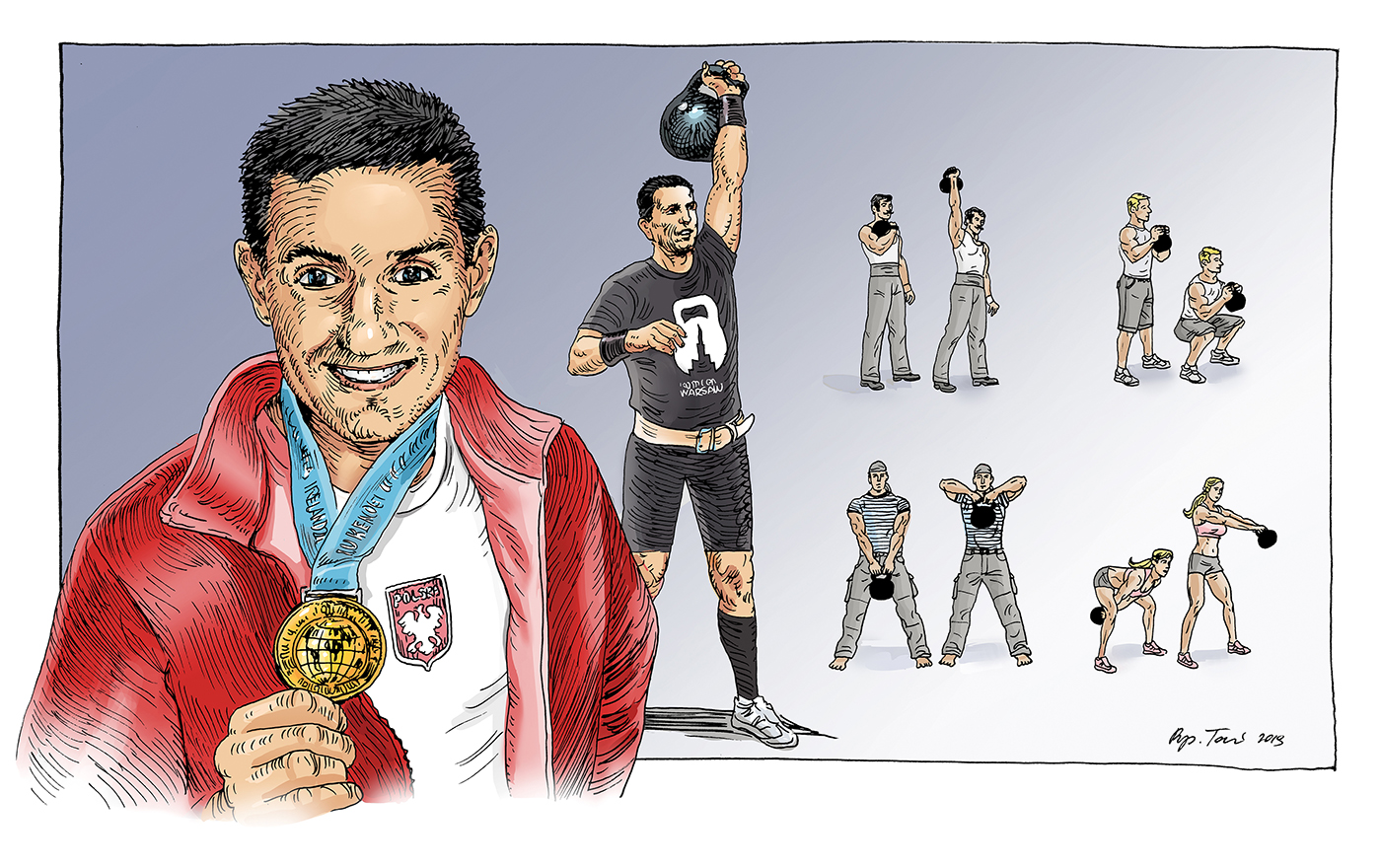
(the stories about the habits of self-awareness, motivation, added value that this sport gives)

WO: I read somewhere that fighting pain works better when you focus on your body and find the real source of the pain, as opposed to taking painkillers. Would you agree?
MŁ: There is a lot of truth in that. As a physiotherapist I can say that of course I agree! Having said that, it is crucial that you avoid any overstraining that could manifest itself with strong pain during training or during a competition. It would be unnatural to accept this pain as something normal.
WO: Let’s go back to what we were discussing when we talked about how you train – to the focus on your own body. In order to achieve this focus, which helps you improve your form, you need to concentrate, eliminate all the thousands, millions of pieces of information that in today’s world attack us all the time, are omnipresent. What is your perfect recipe for staying focused?
MŁ: First of all I think a lot about my goal, I call this “training in my head”. Lots of research proves that what we “do in our heads”, even without physical exercise, affects us in the same way physical exercises would. I also have a playlist of songs I listen to before my competitions. They help me concentrate and stay focused during the “race”.
WO: What about mindfulness, which is also now used in business settings? Are self-awareness and meditation techniques also used in kettlebell training?
MŁ: Yes, of course. I never really worked with the mindfulness technique, but I do use visualization, so mental training, and I listen to my favorite music in order to calm myself. I use these methods before competitions, but also every day when I train.
A few years ago, when I finished my first studies, specializing in physical and health education, I wrote my thesis about mentally preparing competitors for combat sports based on the Brazilian combat sport Jiu-Jitsu, because I myself experienced a very interesting situation. A long time ago, preparing for a Brazilian Jiu-Jitsu competition, I trained twice a day, and every day for about three months, before falling asleep, I imagined myself competing. I visualized every detail. At the time I had no idea what mental training was like, but I felt some pressure because my coach had very high hopes for me. It turned out that the three fights of the competition for the Cup of Poland were exactly the same as I had imagined them in my head earlier. This is why I decided to study this phenomenon, and write my thesis about it.
WO: So once again we are back on the topic of balance and on the kettlebell training effect which, surprisingly, shows that – despite the fact that kettlebell lifting doesn’t look natural – we come out of it with a body with the correct proportions, we are more balanced both physically and mentally, more focused and more self-aware.
MŁ: Of course. Kettlebells are the most universal sports equipment that I have been able to get to know so far.
WO: And with your experience you would know.
MŁ: Yes, I have a lot of experience. If we know how to train skillfully and correctly I think we don’t need any other sports for our mental and physical wellbeing.
WO: What habits did you learn thanks to kettlebell training? I have a feeling that when we talk about high precision and self-awareness of our body we need a lot of reflection, and this reflection in turn causes us to approach the sport with a plan. Was this approach easy or hard for you?
MŁ: My story started in a very interesting way. I gave up on professional training in combat sports and started looking for another form of activity for myself. I found kettlebells and gave them a try – and found that I really liked them. Why? Because you work on your own, you have to concentrate, and you are the only one responsible for what you achieve. I trained combat sports for over twenty years, I know my body and I know how much I can expect from it and how much I can “squeeze” out of it. That’s why in my case it was more a question of learning the technique, and then just polishing it.
WO: So here we are again, discussing self-awareness, focus, and listening to yourself. I remember a quote from Bruce Lee, my childhood hero, who said that a person who achieves success in sports can be average, but needs to be a champion in focusing on what they are doing. Listening to you makes me think of kettlebell training and how it’s a sport that from the sidelines looks very risky for the body, but in fact – as you say – builds natural muscle power, symmetry, and balance.
MŁ: Yes, you said that well. For someone who is not an expert some positions may look unnatural, unhealthy or not in line with the body’s physiology – it may look like we are slightly hunched over. But you must remember that it’s all natural, there is nothing wrong, the backbone is fully flexible, in general our shoulders, hips, and knees are flexible. When we learn the right habits, and our body knows the right poses, it will all be perfectly natural from a biomechanical standpoint.
Look for others inspirations, interviews? Go for p2v